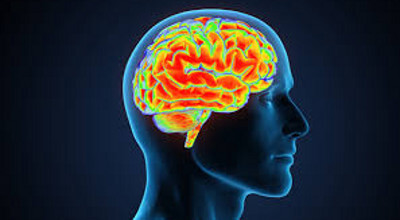Cornell University researchers have developed a reliable method to distinguish between normal, age-related memory decline and the more serious disease-related memory decline. With this methodology, researchers can more accurately identify those likely to develop diseases associated with severe cognitive impairment, such as Alzheimer’s and dementia.
Memory impairment caused by disease differs from the normal memory decline associated with healthy aging. Analyzing the different types of errors made on standard memory tests can help identify these differences.
The new method identifies various patterns and memory processes. This new approach allows disease detection up to six years before obvious symptoms emerge and without expensive tests or invasive procedures.
To develop their model, Cornell College professors Charles Brainerd and Valerie Reyna compared data from two longitudinal studies. One was the broad-based aging, demographics and memory study targeting older adults. The other was the Alzheimer’s disease neuroimaging initiative targeting adults with Alzheimer’s. Both included brain and behavioral measures as well as diagnoses for cognitive impairment and dementia.
Recollective Versus Reconstructive Memory
The researchers identified two types of memory decline—recollective and reconstructive. Recollective memory involves simply recalling a word or event accurately. Reconstructive memory involves the more complicated process of recalling a word or event by making associations. The ability to recall a word or event normally declines with age, but one may still be able to make the recollection by associating it with something else. That’s reconstructing as opposed to simply recollecting.
The inability to reconstruct a word or event by making various associations is evidence of disease. For example, healthy older adults given a list of household pets should be able recall the word dog from the list by associating dog with household pets.
“Reconstructive memory is very stable in healthy individuals, so declines in this type of memory are a hallmark of neurocognitive impairment,” Reyna says.
Declines in reconstructive memory processes were reliable predictors of future progression from mild cognitive impairment to severe dementia. The new model was a better predictor than the best genetic marker of such diseases.
“With 10- or- 15-minute recall tests already in common use worldwide, we can distinguish individuals who have or are at risk for developing cognitive impairment from healthy adults, and we can do so with better accuracy than any existing tools,” Brainerd says.
Memory Training for Older Adults
Brainerd notes the research also has implications for helping all healthy adults improve their memory.
“Younger adults rely heavily on recollection,” he says. “But this method becomes increasingly inefficient throughout mid-adulthood. Training people how to make better use of reconstructive recall as they age should assist healthy adult memory function. Our analytical models are readily available for research and clinical use and could easily be incorporated into existing neuropsychological tests.”
On a side note, the research also challenges the notion that memory declines continuously throughout adulthood. According to the new data, most healthy adults experience some recollective memory decline up until age 69, but not afterward.
“When we separated out the cognitively impaired individuals, we found no evidence of further memory declines after the age of 69 in samples of nationally representative older adults and highly educated older adults,” Reyna says.
Don Colbert, M.D., is board certified in family practice and in anti-aging medicine. He also has received extensive training in nutritional and preventive medicine, and he has helped millions of people discover the joy of living in divine health.
For the original article, visit drcolbert.com.











































